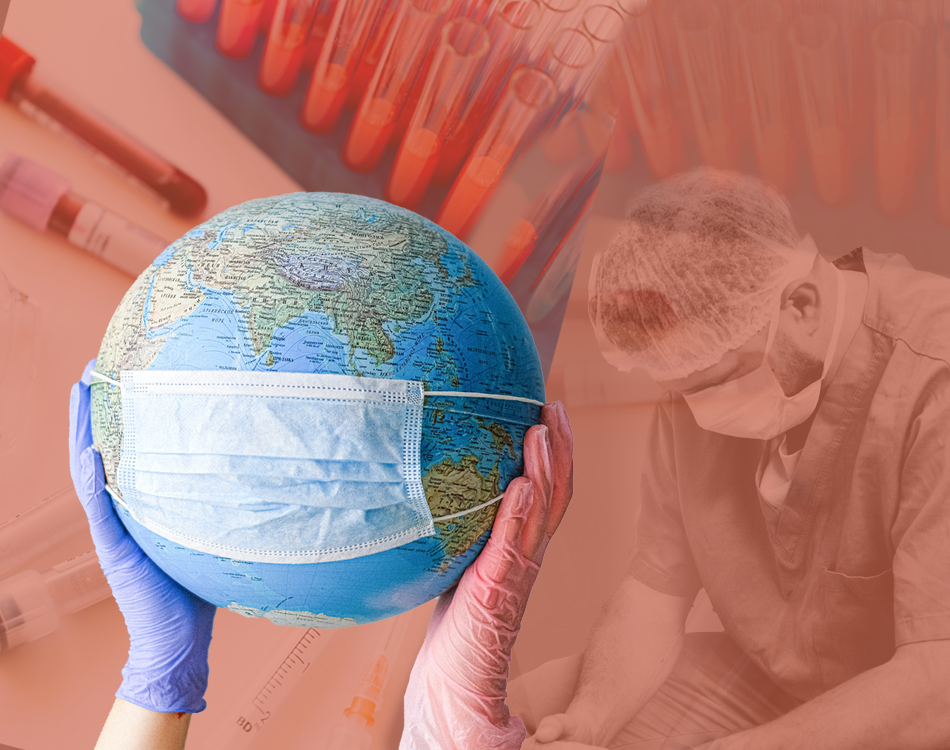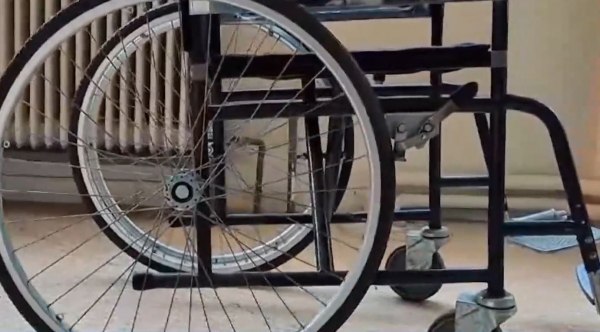Development of Autoantibodies after mild COVID-19 infection
These antibodies can also have a “toxic” effect on normal tissues and organs, that is, they act as “autoantibodies”.
According to a study published in the US Journal of Translational Medicine, COVID-19 infection can result in the production of antibodies against the tissues and organs of the person who became ill months after recovery, even if the disease had few or no symptoms.
Professors of the Therapeutic Clinic of the Medical School of the National and Kapodistrian University of Athens (EKPA), Efstathios Kastritis and Thanos Dimopoulos (Rector of EKPA) report that people infected with a virus produce antibodies to neutralize it. In many viral infections, these antibodies can also have a “toxic” effect on normal tissues and organs, that is, they act as “autoantibodies”. Researchers have known for more than a year that severe cases of COVID-19 can cause a person to develop such “autoantibodies”. In the study from Cedars-Sinai in Los Angeles, the researchers found that the same can happen in less severe cases of COVID19, even for six months after recovery. This deregulation of the immune system, with the production of “autoantibodies” could significantly explain different types of persistent symptoms that have been observed in people who present what is now called “long COVID-19”.
In the study published on 5 January 2022, researchers examined the activity of autoantibodies against 91 autoantigens associated with a number of classic autoimmune diseases in blood samples from 177 unvaccinated individuals (65% women, 35% men, mean age 35 years), who were infected with COVID and compared them with samples from healthy people taken before the pandemic. All people with a history of SARS-CoV-2 infection had elevated levels of autoantibodies, according to the study.
According to the researchers, autoantibodies were found that are usually associated with chronic inflammation involving specific organ systems and tissues such as joints, skin and nervous system. While the overall autoantibody response was more evident in women after asymptomatic infection, the extent and severity of autoantibody reactivity was more pronounced in men after at least mild symptomatic infection. In particular, the observed reactivity included distinct antigens with molecular homology to SARS-CoV-2 antigens. These findings came as a surprise as some of the autoantibodies are more common in autoimmune diseases that affect women more than men.
So on the one hand, this finding is paradoxical, since autoimmune diseases are usually more common in women, but on the other hand, it is also somewhat expected, given that we all know that men are more vulnerable to the more serious forms of COVID-19. In the next steps of the study, researchers will see if these types of autoantibodies are found in people with “long COVID-19” symptoms and also if they are detected in vaccinated people who develop certain side effects.
- Βόρεια Κορέα: Ο Κιμ καθαιρεί τον αντιπρόεδρο της κυβέρνησής του, εξοργισμένος για την «ανικανότητα» στελεχών
- Γροιλανδία: Την ανάγκη «σεβασμού της κυριαρχίας της» τονίζει η φον ντερ Λάιεν σε μέλη του Κογκρέσου των ΗΠΑ
- Συρία: Τραμπ και Σάρα συζήτησαν για τις εγγυήσεις των δικαιωμάτων των Κούρδων
- Γουατεμάλα: 9ος αστυνομικός νεκρός από τα πυρά συμμοριών
- Ιράν: Η Lufthansa αναστέλλει τις πτήσεις προς και από την Τεχεράνη μέχρι και τις 29 Μαρτίου
- Τουλάχιστον 1.500 μέλη του Ισλαμικού Κράτους δραπέτευσαν από φυλακές της Συρίας
- Τρίπολη – Νεστάνη: Νεκρός εντοπίστηκε ηλικιωμένος κατά την κατάσβεση πυρκαγιάς σε κατοικία
- Στα «ΝΕΑ» της Τρίτης: Τρεις ανατροπές υπέρ των παιδιών
Ακολουθήστε το in.gr στο Google News και μάθετε πρώτοι όλες τις ειδήσεις








![Άκρως Ζωδιακό: Τα Do’s και Don’ts στα ζώδια σήμερα [Τρίτη 20.01.2026]](https://www.in.gr/wp-content/uploads/2026/01/danie-franco-wEuWV0Vz9uw-unsplash-315x220.jpg)











































































 Αριθμός Πιστοποίησης Μ.Η.Τ.232442
Αριθμός Πιστοποίησης Μ.Η.Τ.232442